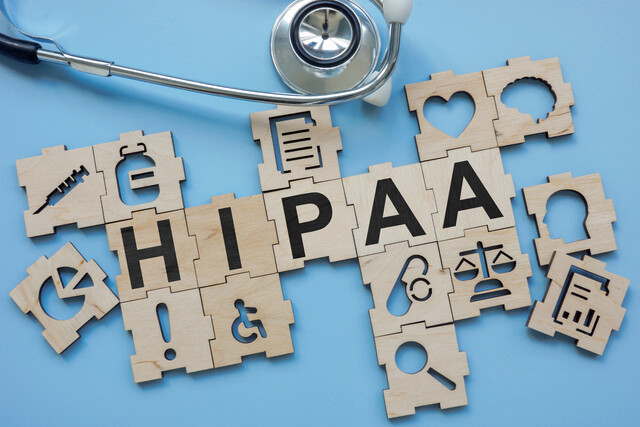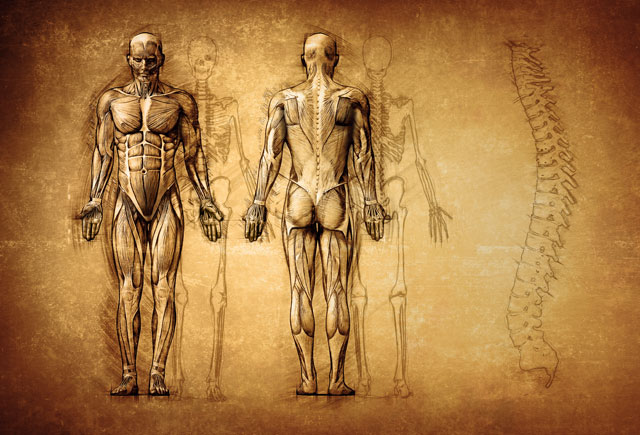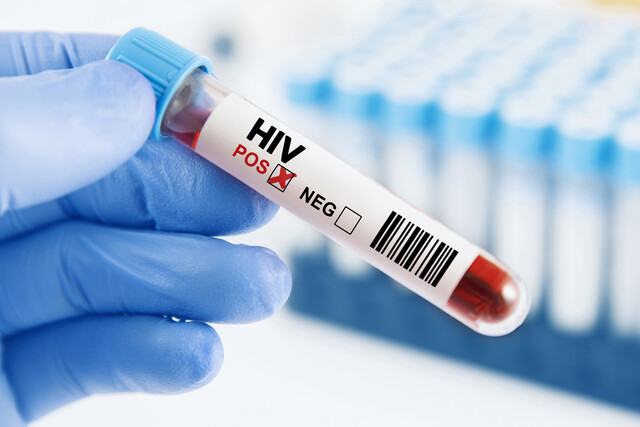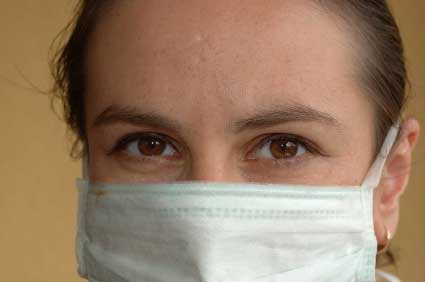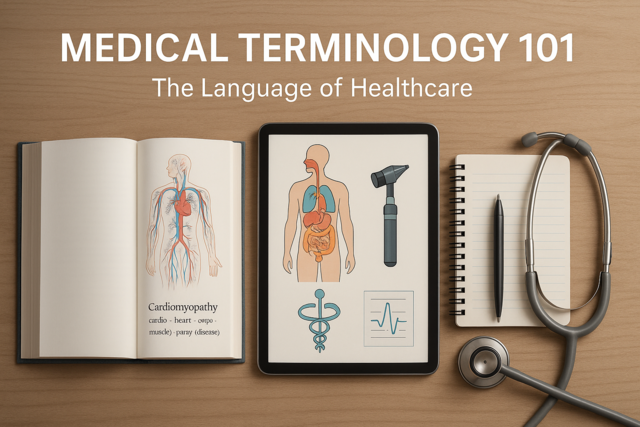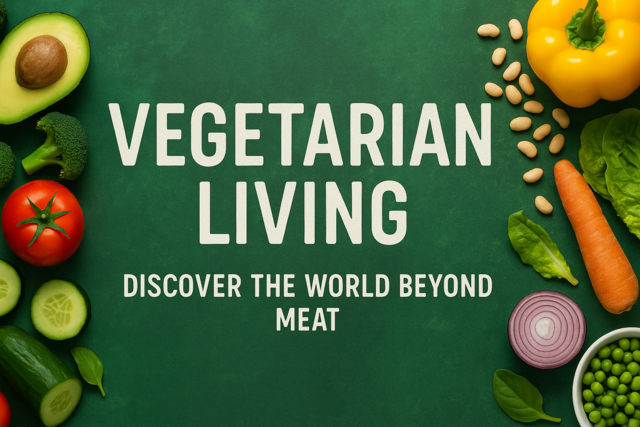Introduction
Not all individuals will positively react, or be able, to take traditional medications. Others can't afford it. Still others may want to combine natural, complementary, or alternative medical approaches with traditional drug treatment. Many individuals are wary of medications and their side effects, as well as potential drug interactions and complications. Some may choose alternative forms of therapy for treatment of HIV before they're recommended for drug therapies. Such forms of treatment may be beneficial for those who do not yet have a CD4 count of fewer than 200.
Most supplements on the market today have not been scientifically proven to reduce or relieve symptoms of major diseases, including HIV or AIDS. However, folklore medicine has been practiced around the world for thousands of years; some remedies are more effective than others. For those interested in seeking an alternative medical treatment for HIV, talk to your doctor, do your homework, and research alternative medical treatments, supplements, and less common therapies and methods for treating symptoms.
Defining an Alternative or Complementary Treatment or Therapy
Alternative or complementary medicine is not considered conventional medical care in the Western world. However, other cultures around the world, including those found in Asia, South America, Europe, and South Africa, have practiced forms of healing that involve the use of plants, including leaves, roots of trees, flowers and shrubs, as well as animal parts, in some cases.
Other forms of alternative medicine may include, but are not limited to:
- Acupuncture
- Homeopathy
- Yoga
- Aromatherapy
- Nutritional supplements
Acupuncture has been practiced for thousands of years in ancient China and throughout Asia. Acupuncture involves the use of very fine needles inserted beneath the skin at specific energy or life force pathways known as meridians. These are found throughout the body's surface. Acupuncture needles placed at these points are believed to release or improve the body's flow of energy, known as chi. This flow of energy is believed to restore balance, circulation, and harmony to the body.
In the Western world, acupuncture is also believed to stimulate connective tissues, nerves and muscles and to help improve circulation and blood flow as well as to release endorphins and other chemicals that act as the body's natural painkillers.
-
Homeopathy has been practiced for centuries, originating in Germany. The practice is founded on what is called a "principle of similars," according to the National Institutes of Health. At its most basic definition, those who practice homeopathic principals believe that diseases can be cured by various substances that produce similar symptoms of illness in those who are healthy.
-
Very small doses of liquids, tinctures of natural botanical products, and chemicals are given for greater effectiveness. No studies have yet determined that homeopathy has proven effective in the treatment of disease processes, so utilize this approach with caution. The most common parts of plants used in the practice of homeopathy include herbs, root vegetables, bark and leaves, or flowers and fruits of trees. However, animal body parts are also sometimes used.
Homeopathy is founded on basic folklore medicine. Millions of people practice it in the United States and around the world. Because homeopathy remedies contain very few active ingredients, if any at all, they don't need to adhere to the legal standards for purity, effectiveness, or packaging as defined the Food and Drug Administration. Any homeopathic treatment that claims to treat HIV, AIDS, or its associated symptoms needs to be prescribed by a doctor.
Yoga is an ancient philosophy of India that seeks to combine body, mind, and spirit through a variety of physical postures. Yoga also incorporates breathing techniques, relaxation, and meditation techniques and positions, which may prove beneficial in helping individuals diagnosed with HIV or AIDS reduce stress and anxiety. It may also relieve some HIV-related symptoms and complications.
The foundations of yoga are to offer individuals who practice it a set of guidelines for healthy lifestyles, moral behavior, concentration, a sense of higher consciousness, and the physical benefits of the postures and breathing exercises incorporated into every position.
Most alternative or complementary therapies are not intended to treat or cure HIV or AIDS, but to offer relief from some of the symptoms of these conditions. Alternative therapies also may help to reduce the threat of opportunistic infections by maintaining optimal physical and emotional health and well-being.
Some of the above-mentioned treatments may work better than others, but the power of the mind is an incredible thing. Individuals or loved ones of those diagnosed with HIV should encourage them to seek out safe forms of alternative medicine that may help provide relief, comfort, and an increased awareness of the connection between body and mind. Depression, isolation, and anxiousness may have a very negative impact on a person's physical health, even when they're healthy. When that person has been diagnosed with a chronic illness like HIV, the importance of attitude, perception, and mental strength is even greater.
Keep in mind that alternative forms of medicine are just now growing more accepted in circles offering traditional medications in the Western world. A great majority of doctors today, especially those found in the United States, may encourage a combination of traditional and complementary forms of medication and treatments when dealing with HIV. Talk to your family physician, counselor or other health care provider to determine whether some alternative forms of medicine may help specific conditions.
Note - Do not take any supplements, homeopathic remedies, herbs, or concoctions developed by others, or offered on drugstore shelves, without first checking with a medical health provider -- especially if you're already taking prescribed medication. Use of such supplements, remedies, herbs, or concoctions may reduce the efficacy of the above-prescribed medications, and may even promote dangerous drug interactions or side effects.
-
Supplements
When the body fights against an invader, the immune system kicks in. Because the body needs all its energy to focus on fighting the infection, other body symptoms may slow. Individuals diagnosed with HIV may experience a decreased appetite, sensations of queasiness or nausea, and sometimes, vomiting after eating.
It is understood that poor nutrition or malnutrition can speed up the process of the HIV infection, further weakening the body. Today, the efficacy of certain vitamins, minerals, or other nutritional supplements is still being researched. Clinical trials are underway, trying to determine whether nutritional supplements are truly effective in helping reduce symptoms as well as promote health and wellness, or whether individuals who tend to take such supplements in the first place are generally healthier than their counterparts who don't take nutritional supplements.
To date, very few studies have been performed on nutritional supplements and their relation to HIV. Certain vitamins, such as vitamin B12, may help to promote the body's immune system. Zinc may help reduce the severity and frequency of diarrhea, though high doses of any supplement may cause problems, including vitamin C. For example, toxic doses of vitamin A (more than 25,000 IU daily) may cause internal bleeding, weight loss, loss of appetite, and a greater chance of spontaneous bone fracture.
Unfortunately, a variety of nutritional supplements may also react adversely to medications. Such examples may include grapefruit juice, garlic, vitamin C, and Saint John's Wort. Because of this, it is extremely important for individuals diagnosed with HIV and currently taking medications to speak with their health care providers regarding certain herbs, supplements, and remedies. Other herbs, such as ginseng, kava, psyllium, dong quai, valerian, and ginkgo may also promote drug-herb interactions
Caution
Taking too many vitamins may have the opposite effect as that intended. For example, mega doses of vitamin C may actually cause diarrhea, leading to dehydration, nausea, and vomiting. Some medications, as just mentioned, negatively interact with medications and drugs, reducing their effectiveness, or causing unexpected and harmful interactions or side effects. Individuals interested in nutritional supplements should speak to their doctor, as well as a certified nutritional counselor when devising an adequate nutrition and dieting plan.
Living With HIVConclusion
While some forms of alternative and complementary medicine may help relieve symptoms and provide greater comfort and peace of mind for individuals diagnosed with HIV, always discuss the use of such with the doctor. In most cases, a doctor will suggest a healthy diet, exercise, and positive lifestyle habits that will help individuals lead a higher quality of life, for as long as possible.
Introduction
After an initial diagnosis of HIV, most individuals do their best to learn about and understand the condition and disease process. Because information and education is so important in helping to avoid complications, reduce frequency and severity of symptoms, enhance longevity, and quality of life, it's important to understand what others have done to adapt and deal with an HIV diagnosis.
In addition to understanding the physical and emotional effects of HIV, as well as what to expect from medical care and medications, individuals who are HIV positive -- or know someone who is -- should be encouraged to do their utmost to adapt their lifestyle, dietary, and exercise habits to promote optimal health and wellness.
While this article is not intended to serve as a definitive way to live with the disease, it perhaps will give individuals ideas about how they can adapt or alter their lifestyles and habits to lead fuller, more comfortable, high-quality lives.
Healthy Lifestyle Habits
While this may sound rather blunt, it is not intended to seem callous or uncaring: Once the HIV diagnosis is made, it's up to the individual to learn how to deal with the condition. Of course, it may take some time to mentally adapt oneself to the diagnosis, but sooner or later, individuals generally accept the condition, and then take steps to control it.
Taking control is a major part of living with HIV. Yes, your body may be at the whims of symptoms caused by HIV, including lack of appetite, nausea, and fatigue; but understanding why and how such symptoms occur will help individuals learn to adapt their habits and daily routines to cater their needs and schedules to the vagaries of the condition. This is a trial and error period, where individuals learn to adapt to their limitations, capabilities, and desires.
Some deal with this aspect of taking control better than others. Again, every individual's personality and character as well as attitude will play a large role in how he or she lives with the diagnosis. Many people accept the diagnosis with stoic silence, while others may spend 3 to 6 months in a period of depression, experiencing lack of interest or despair.
Individuals dealing and living with an HIV-positive diagnosis will experience a wide range of emotions, from guilt to fear, to depression and anger. A person's friends and family may help some through this process, but in some cases, such support is not available. Ultimately, each individual diagnosed with HIV must learn to deal with the diagnosis in their own way, with or without the support of friends and family, and with or without social acceptance.
HIV, once diagnosed, won't disappear, won't go away, and will ultimately lead to further medical conditions and complications. Sure, hope for a cure is always present, but at this time, is not on the horizon. Accepting this and moving on, getting the most out of life, and enjoying a relatively healthy and active lifestyle, helps many individuals deal with the condition and disease process for decades, such as the example set by basketball legend Magic Johnson.
Taking charge means facing the diagnosis and doing something about it. One's approaches to life, whether at work, school, or with loved ones and family, may need to be altered. For example, a workaholic diagnosed with HIV may have to slow down on his workload, concentrate more on family and friends, and learn to relax and relinquish control to a certain degree. Another person who is shy and withdrawn, may decide to charge through life head-on, doing and attempting things that he otherwise would never have imagined.
When dealing with an HIV diagnosis, decisions need to be made. Financial, legal and medical situations and scenarios should be examined, mulled over and decided upon. Plans need to be made. Strategies and alternate strategies can be devised depending on the course of the disease and how the individual feels.
It's important for individuals diagnosed with the disease to avoid the urge to solve all their problems or situations at once. Tackle one problem or issue at a time. Carefully research options, give yourself choices, and choose scenarios or resolutions that best suit you, your loved ones, and your ultimate goals.
While an HIV-positive diagnosis may hover in the back of your mind all the time, give yourself permission to take a break. Do the things you enjoy. Relaxation exercises, meditation, yoga, and various forms of exercise release natural endorphins in the brain that create a pleasant "feel good" sensation in the body. In addition to maintaining muscle tone, strength and flexibility, exercise, either indoors or out, is an excellent way for individuals to forget, just for a little while, their diagnoses, emotions, and limitations.
Taking breaks is also essential for caregivers of those experiencing the later stages of HIV and AIDS. Don't feel guilty about occasional eruptions of anger, despair, or self-pity. These are natural. Instead, accept these emotions and find strength where you can, whether it's from friends, loved ones, family, or social support groups, religious leaders or organizations, or even a walk with your dog.
Be willing to accept your feelings, as it's natural to feel periods of disillusionment, discouragement, and even despair. At the same time, allow yourself to laugh, to enjoy those moments when everything seems right in the world, or to pound your pillow at night in anger.
Depending on the severity and frequency of symptoms, individuals diagnosed with HIV will learn how to move through the medical health care system. Take the time to understand how the medical system works, how to take care of and address forms, insurance requirements, and resources that may help pay for care or medication.
Don't hesitate to ask questions. While your doctor may have answered that question thousands of times before, this is the first time you'veasked it. If you don't ask questions, medical care providers and support personnel will assume that you know everything you need to know about your condition. Keep in mind that compassionate and caring physicians will understand your concerns, worries or questions. If you find that a physician or health care provider is unwilling to address your questions or concerns, is impatient or rude, find another provider.
Keep up-to-date with new developments and treatments for symptoms related to AIDS, as well as HIV-related complications. Do your own research, and talk to your doctor or other health care provider regarding new developments in treatment plans. If you feel it's necessary, ask for a second opinion when it comes to a diagnosis, medication, or treatment plan if you don't agree with your primary care provider's suggestions. This is your right. It's your body.
In order to take care of yourself and make the best decisions regarding your health care, individuals with HIV need to understand basic terms and definitions regarding the HIV diagnosis, treatment plan, and prognosis.
An HIV Diet
Another way individuals with HIV can take greater control over their lives is to eat well, exercise as often as possible, and stay socially engaged. Eating well is one of the most important things a person diagnosed with HIV can do. Because the immune system is compromised, it's important to gain as many nutrients from the food you eat as possible to help boost organ function, as well as to promote your body's immune system.
For specifics, talk to your doctor or a registered dietitian who is licensed and trained in working with HIV-positive patients. Individuals can also access county health departments, hospitals, and clinics for resources in dietary planning.
An HIV diet will be rich in vegetables and fruits. Taking special care with food preparation is also important. HIV-positive individuals need to be extremely careful not to eat any raw or rare meats, and to eat only foods that have been stored at adequate and proper temperatures to kill bacteria, such as salmonella.
According to the University of California's San Francisco Medical Center, it's important to eat smaller meals more often. A diet high in protein, and consistent food intake throughout the day, will help boost the immune system and encourage a stronger body. It's also important to drink adequate amounts of liquids, especially when you're taking medications, or if you're experiencing bouts of diarrhea or vomiting. Liquids can help prevent dehydration and, in severe cases, protect the kidneys from damage.
Nutrients such as vitamins and minerals found in foods may help boost the immune system. For example, dark green vegetables, or vegetables with bright colors such as green, yellow, orange, or red peppers are rich in vitamin A and beta-carotenes, which help to promote function and health of the stomach, lungs, and skin.
Vitamin B boosts immune and nervous system function. Vitamin B is found in adequate amounts of dark green leafy vegetables, nuts, greens, and beans. Citrus fruits, tomatoes, and potatoes are rich sources of vitamin C, which help protect the body from infection, while vegetable oils, peanuts, and green leafy vegetables are rich in vitamin E, helping the body not only fight off infection, but protecting and keeping cells healthy and happy.
Conclusion
It takes time for any individual to adapt to an HIV diagnosis. However, remember the saying, "information is power." This is especially true when it comes to chronic illnesses and diseases like HIV/AIDS. Learn everything you can about the disease and how you can do your part to live a healthier lifestyle by making changes in diet, exercise, and habits.
Eventually, your immune system may be compromised to the point where you or a loved one is more liable to contract an HIV-related condition.





